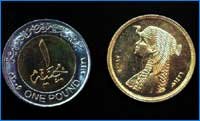I think this is the first non translated arabic literature written in English directly that I ever read in my life. I read short stories for Mohamed Tewfik but this is the first novel to read under such category. This arabic literature in translation course is the best seminar subsitute choice I have taken.
Well, I have some problems imagining how Egypt was in the 60s and the more I read the more I form that image. Well, life under the socialist tyrant authoritarian oppressive regime lead by Abdel Nasser was horrible in Egypt. Security on campus? Permission to hang a poster? Ali Badrakhan's El Karnak is what came in mind for a while. Not only that, going around in trams, the 55 piastres paid to the taxi for the distance between Cairo University and Hasan Sabry street in Zamalek.
From my reading to the first 300 pages of the novel I am getting more sure that the generation of people in Egypt born between 1940-1960 have phsychological problems. This is equivalent to the
baby boomers in the United States. Yeah, I know I am speaking here about parents and grandparents. But this is my own opinion. This opinion was influenced by my sociological studies and history readings as well. I think one of the major reasons behind that is the socialist live and then the 1967 war followed by the rise of the illeterate craftsmen in the 70s after Sadat's liberation that was economicaly wrong.
What also pazzled me a lot is her relationship with Saif Madi. I think she didn't really love him. After for years of love interrupted by a lustful events in her journey to Italy and then not wanting a Baby from him. This is what attaches a woman to man. Even in our recent times with highly educated people living in high standards, children, in addition to intimacy, is what forms that eternal bond between a man and a woman. Saif seems to be a cool, loving guy. But Asya has that same trait with all women. There is something common about women in their relationship with men, even with Amina and Se El Sayed Ahmed, sometimes they show it and other times they don't even if they are very passive or defiant. This thing is apparent in all gender novels either in Arabic or in English. She wanted him, for 4 years she wanted him yet he refused to harm her till marriage. After marriage, or after engagement she didn't like him. Is it her problem that she makes him feel like that or that she is 8 years younger? When I read Chrissie's letter to her, I told myself, this is what Asya deserves. Saif should have married a second wife.
What about Gerald Stone? He too is an important character in the novel. To Asya, Gerald is like any other man. He could represnt the the british conqueror. But, probably he is just in the novel to show that all men are alike, possessive and ignorant of women feelings. This is obvious in my opinion. Well, I have nothing against that. Maybe its just a stereotype about a novel writen by woman however, it might be true. However, Gerald is greedy here. He is incompetent. Down to the novel level, Asya was getting on my nerves by being so submissive to him. I was glad that she got rid of him in New York City.
Hamid Morsy is another problem. Why is he suffering like that? Getting crushed between two big military truck in front of the military officers club on the eve of the war? Losing his hand and having it amputated later on? Getting cancer and fighting death after that? Not to mention his father's dislike for him being with him in his shop? He is also suffering the neglect of Sunny his wife? Does he reperesnt Egypt? Starting to weaken in 1967 and almost dying in 1979? I am not sure about that. May be there is other explanation.
Also I tried to figure out Asya's PhD. problem in England. What's wrong with her? Why did she suddenly find everything difficult? Why didn't she understand it. While reading the bits and pieces about the metaphors and explanations she was using, the first thing that came in my mind was the discrete mathematics course in which i got the worst grade ever in my life. Did she really went to England for the Ph.D? I don't think so. Asya didn't find herself in Egypt so she went to England. Her troubles with the PhD. were symbolic of her unhappiness in England too.
Another interesting thing about the novel is the multiple stories taking place in the novel, most in from of letters between Egypt and England. But I lived the story of Fouad El Sennary and Chrissie El trabulsi as if I was watching it on TV. If the novel wasn't first published in 1992, I would have said that Ahdaf copied it from "Al Mal wal Banoun"? It is very similar to that series. The same thing happened between Hanan Turk and Wael Nour in the series. Also story of Leon and Nicole. It started long before their marriage and continued later on. Nicole always hater Leon and Leon didn't want children. Not to mention her own relationship with Gerald. Oh!, what's wrong with Ahdaf, all men are villains in this novel or what?
As far as I understood, this is a pseudo autobiography for Ahdaf herself. I believe she included reflections of real family members in that story. If I were to write
In the Eye of the Sun would make a good 2 parts tv series in Egypt similar to Lialy El Helmia. I would call it "Al Hob Al Da'ea'" or "Al Bahth 'an hob", The lost love or searching for love.
Last words:
My next step: Son3alla Ibrahim. I read a couple of reviews for his books and he is one I should be reading for.
[update] Ahdaf Souief is here in Egypt and she will give a lecture in the American University in Cairo from 5-7pm.
Labels: Novels






